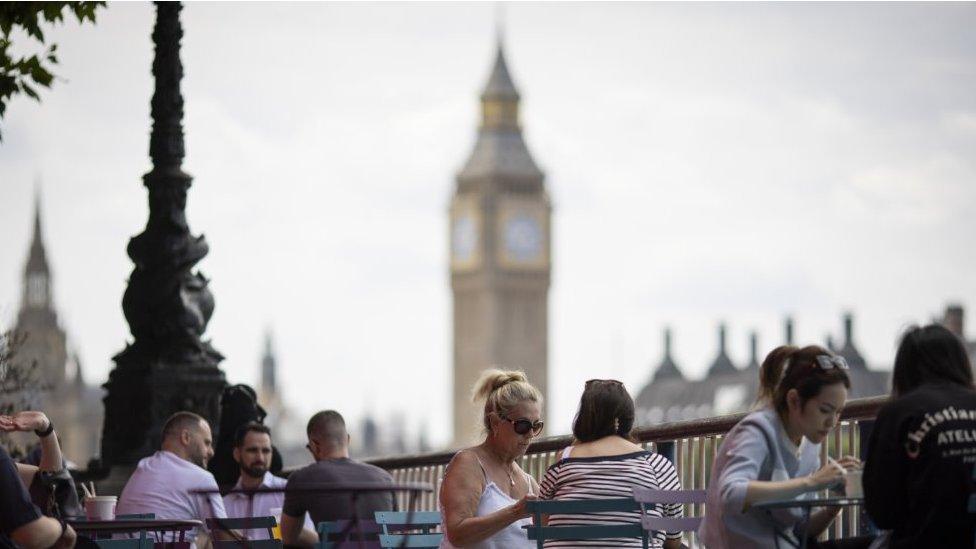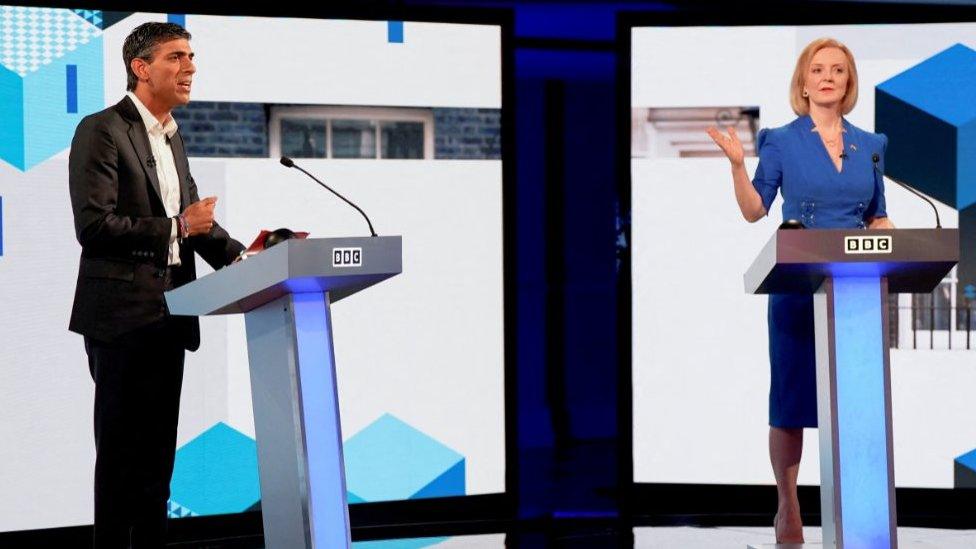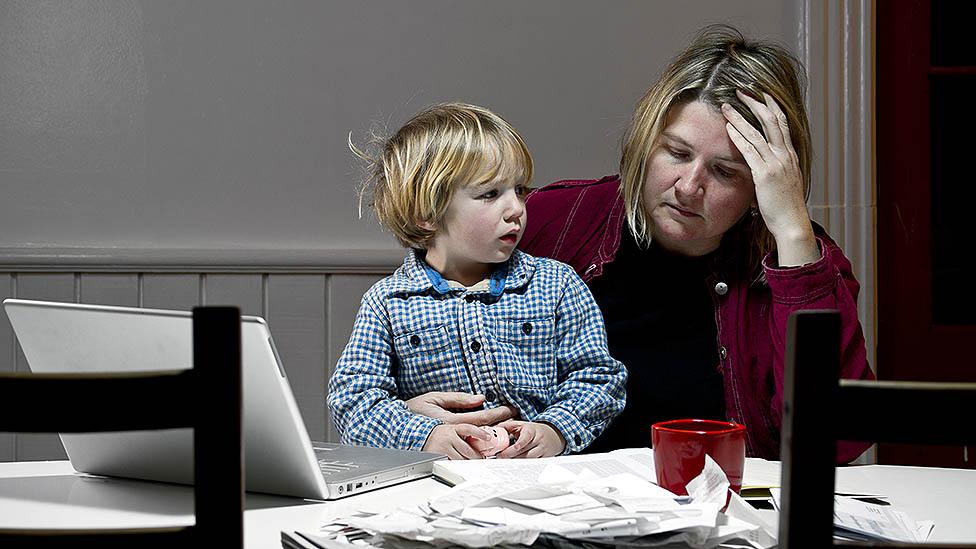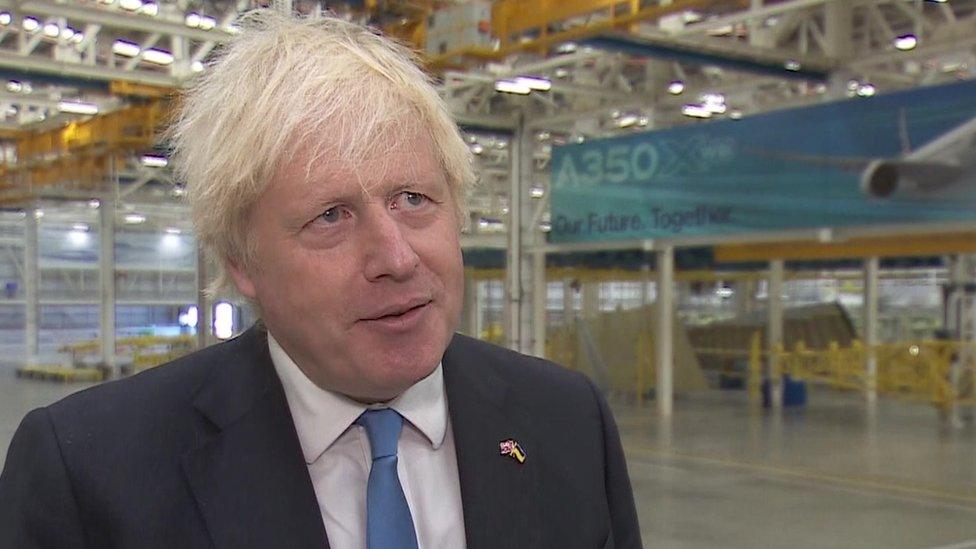Why decisions on more cost of living action will have to wait
- Published

We've just had an admission from the prime minister. Boris Johnson has said the current package to help with energy bills won't be enough.
This might sound obvious if you're worried about paying for gas and electricity this winter. The last package was based on a lower price cap. Things have changed.
But Mr Johnson has made it clear that he thinks further support will be needed from whoever succeeds him at the start of September.
"What we're doing... is trying to make sure that by October, by January, there is further support," he said.
The current chancellor is drawing up options for the next government to consider and put into action right away. The prime minister says he is making sure the cash is there for them to spend.
But Mr Johnson isn't going to make that decision himself. Several government figures have made it clear the big decisions can not be taken by the outgoing regime.
There is other work going on behind the scenes, to look at extra support for important energy intensive industries like steel and ceramics, But again the final say will not be for the people currently in charge, but whoever comes next.
The lack of immediate action infuriates people like Martin Lewis, the money saving expert. It angers some opposition politicians too, who say the scale of the energy crisis is such that the government can't wait a month to decide what it's going to do.
The Liberal Democrats have already said they want the energy price cap rise to be stopped, with an expanded windfall tax on oil and gas profits paying for it. Neither Rishi Sunak or Liz Truss are keen on extending the current windfall tax though.
After some questions about why it hasn't said more already, Labour will set out its strategy in the next few days.
In a preview of its thinking, the party has said it wants to bring down bills for people on prepayment meters so they face costs in line with direct debit users.
That will matter for the four million people on prepayment meters, who will save a bit, but obviously it doesn't address the wider issue of spiralling prices. We'll hear more from Keir Starmer next week when he's promising a comprehensive and costed plan.
But whatever options are suggested by the opposition or left on the table by the current government, it looks increasingly clear that concrete decisions are going to have to wait. Not least because the two people who could be making them sharply disagree.

Rishi Sunak says he will definitely announce more support if he becomes prime minister. He's confirmed he is prepared to borrow money to pay for it, after criticising Liz Truss for saying she'd borrow more to cut tax. He says he has a moral responsibility.
Ms Truss has been more non-committal. She has softened her position after saying "no handouts" - they now aren't being ruled out. But her focus is appealing to Conservative members, by concentrating on tax cuts and letting people keep more on their money (more here on why it's a bit more complicated than that).
Ms Truss has also rejected the idea of sitting down with her rival and the current prime minister to try to work out some immediate answers. So that's a non-starter.
Mr Sunak and Ms Truss are involved in an ideological battle to define Conservatism in 2022.
Conservative members are weighing up which they prefer. But while they decide, decisions over help with the cost of living look like they are going to have to wait.
- Published10 August 2022

- Published12 August 2022

